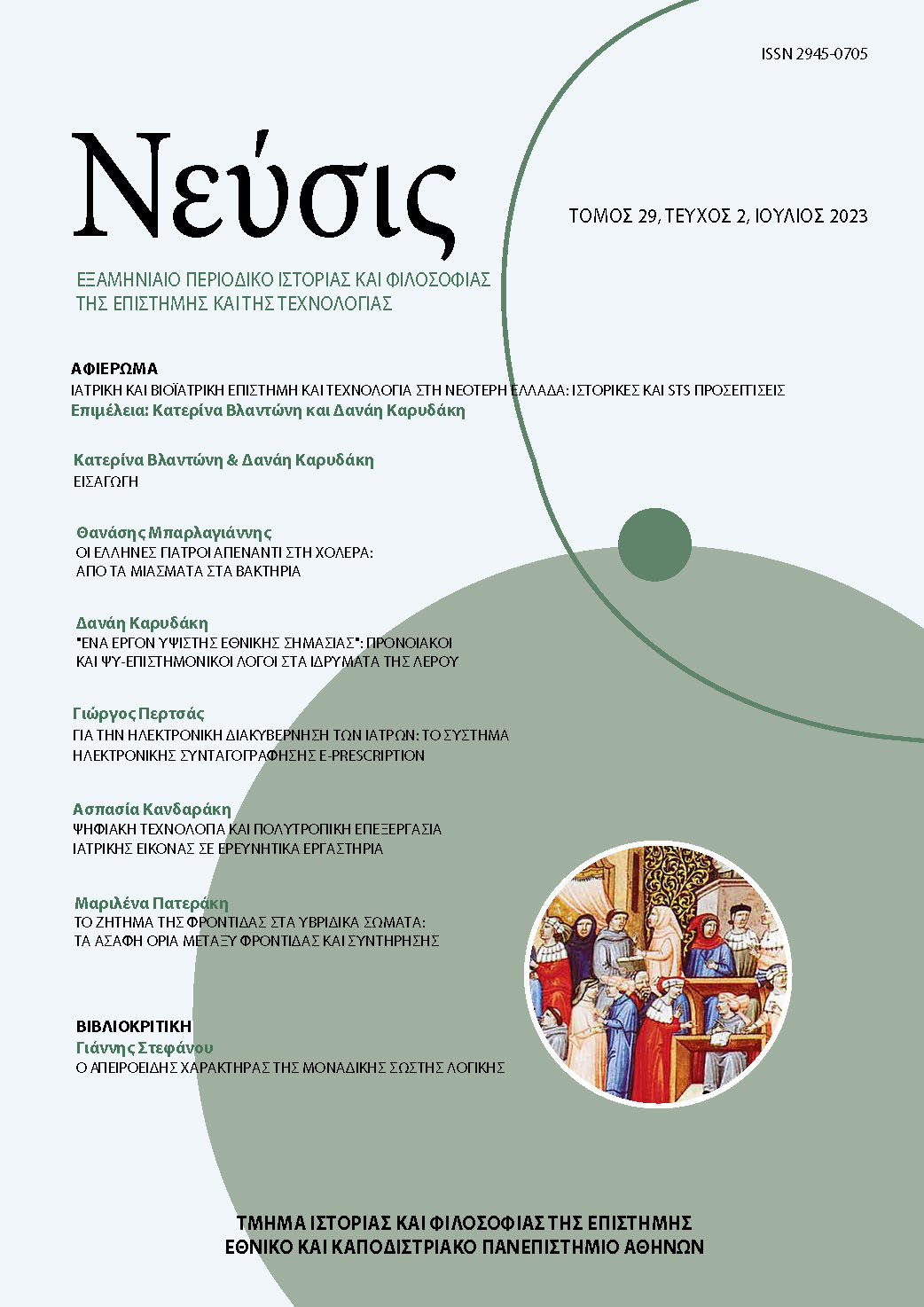On the Electronic Governance of Doctors The Case of the E-prescription System

Abstract
The present article focuses on the electronic governance of doctors. My approach is inspired by the insights of Science and Technology Studies (STS). More specifically, I try to highlight the importance of technology as a crucial mediating factor with regulatory/controlling as well as formulating influence on doctors’ prescribing behaviour and medical practice. The article is structured in three parts. In the first part, I reconstruct the way in which doctors’ prescribing behaviour has been considered as a problem and one of the basic causes of high public health expenditures in Greece. This particular problematization has set the conditions and general directions for the design of the System of Electronic Prescription (SEP), which has been depicted as a solution to this problem. In the second part, I draw mostly on the work of Michel Foucault and Bruno Latour (rationality of government, delegation, script, programme of action) to showcase the importance of technology in the strategies of governing doctors. In the third part, I focus on particular functionalities of the SEP and the manifold ways that these restrict, block, demarcate or promote doctors’ prescribing behaviour towards specific directions. Given that prescriptions are an integral part of medical practice, I conclude that the SEP controls and steers it in ways that range from strictly disciplinary up to more indirect interventions, which leave more leeway to doctors in their daily interaction with it. At the same time, going beyond control and regulation, the SEP reconfigures medical practice itself based on the principles and assumptions of a particular medical paradigm, namely evidence-based medicine.
Article Details
- How to Cite
-
Pertsas, G. (2024). On the Electronic Governance of Doctors : The Case of the E-prescription System . Neusis, 29(2). https://doi.org/10.12681/nef.34804 (Original work published August 3, 2023)
- Section
- Articles


